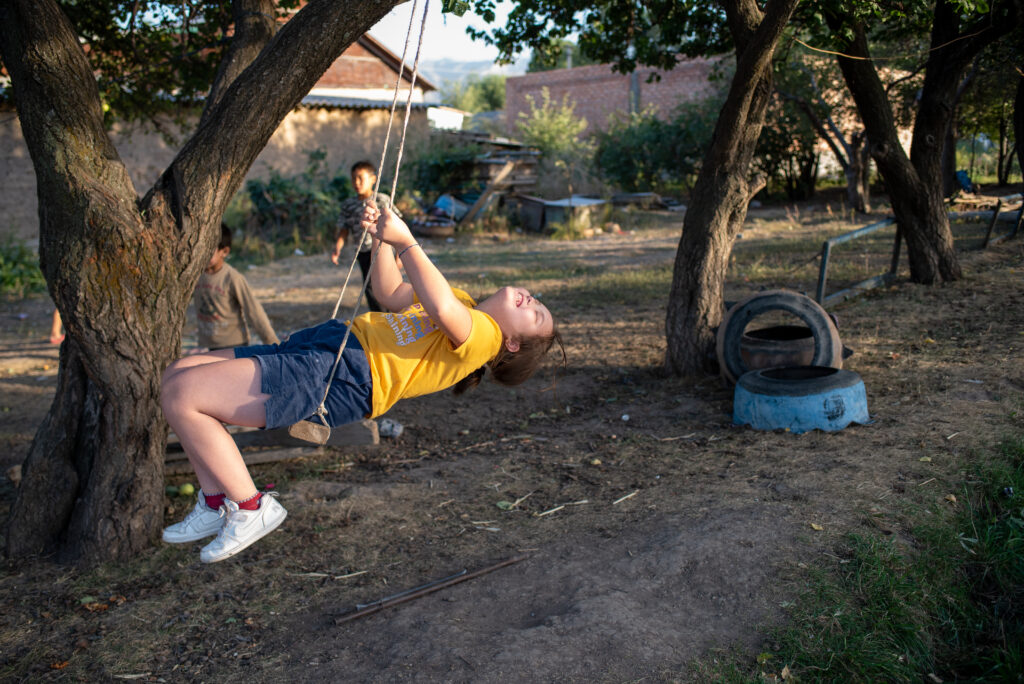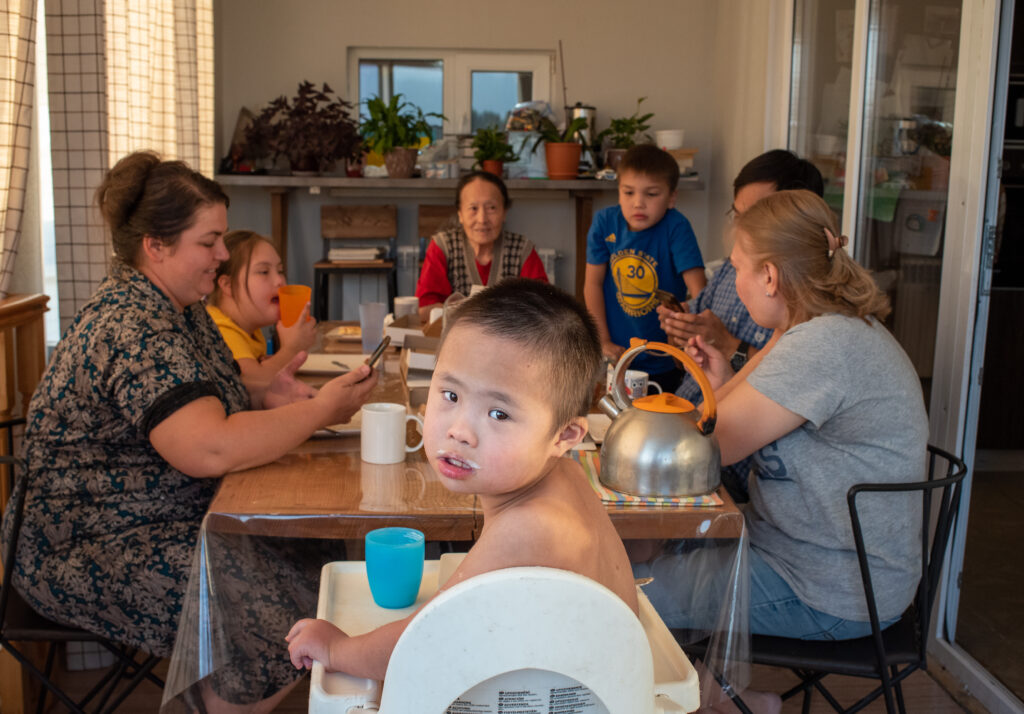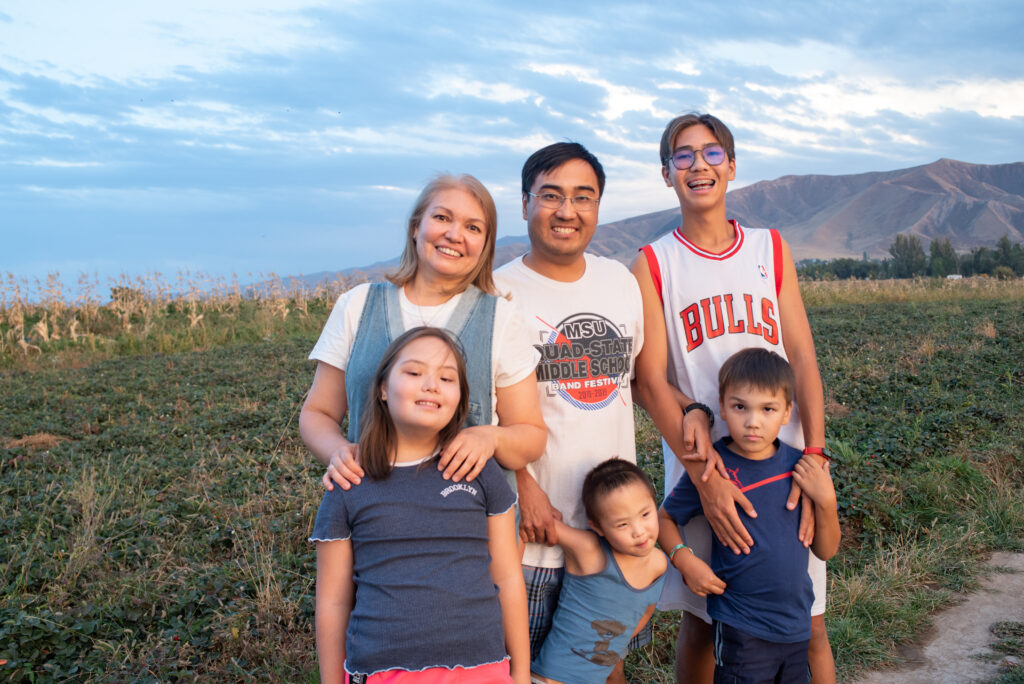Sunterra – Giving Children with Down Syndrome a Brighter Future in Kyrgyzstan
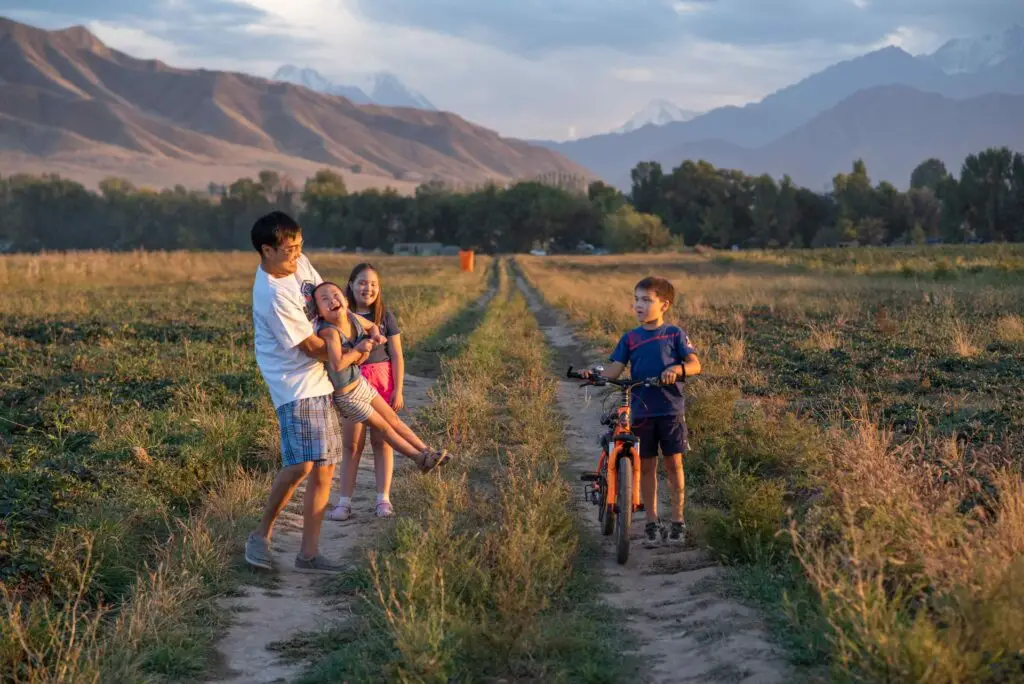
There’s nothing quite like becoming a parent, and the Eshalieva family was filled with joy when they heard that their growing household would soon welcome another member. As parents, this special moment was one of the most beautiful experiences life had to offer — an unforgettable journey full of expectations, anticipation and love. They imagined what their soon-to-be-born child would be like – would the baby have her mother’s eyes or his father’s laugh? Would this little person have an adventurous spirit or one full of creativity? So many possibilities swirled in their minds, all weaving into larger hopes and dreams for the well-being of their beloved little one. A truly precious time full of magical daydreams. Underlying were accompanying fears as their due date approached. Fears associated with this process are so acute, they can be overwhelming: Will my child have health concerns? Will they enter into a world that treats them with respect and love? Can we adequately provide financially for this child? No matter how much planning and preparation is done, many of these apprehensions remain dormant until the day arrives when parents learn more about their little bundle of joy. For Dina and Nurmat Eshalieva, that fear became a reality when their little girl, Abigel, was diagnosed with Down syndrome (DS).
LIVING WITH DOWN SYNDROME IN KYRGYZSTAN
Under Soviet Union rule, people with Down syndrome were institutionalized and hidden away from society. This was done in part to avoid the shame that was associated with the condition, but also to keep people with disabilities from being a burden on the country. In this period, those with DS were often seen as less valuable to society than those with typical development. After the collapse of the Soviet Union, many of these institutions were shut down, and people with DS were forced to fend for themselves. Due to shame and fear, many parents chose – and in some cases, forced – to give their children up for adoption or to have an abortion if they knew that their child had DS. While attitudes have slowly changed in recent years, the legacy still haunts Kyrgyzstan’s Down syndrome community.
Driven by the need to counter the stigmatized thinking prevalent in Kyrgyzstan, Dina and Nurmat sought information and counseling from sources outside their country. Organizations like The Downside Up Family Support Centre out of Russia and Father’s Joy out of Texas, provided them with scientific-based and uplifting information. Gradually, the positive and encouraging feedback from these external resources overshadowed the dismal and sympathetic responses they received from local medical staff, and well- meaning family and friends. This shift in outlook transformed their lives as a family and sparked a deep desire within them to support other parents facing similar challenges. They recognized the lack of accessible support, education, and advocacy in Kyrgyzstan and felt a calling to address it. “We strongly felt it was our calling, our mission, and we just had to do it,” shares Dina. Consequently, Sunterra – Public Foundation was established by the Eshalievas and a group of parents, about six years after Abigel’s birth. Since its inception in 2016, Sunterra has expanded to three different regions in Kyrgyzstan – Bishkek, Issyk-Kul, and Osh – and has provided assistance to hundreds of families.
WHAT IS SUNTERRA?
Sunterra’s flagship office is located in the capital city of Bishkek and ran out of a small building containing three rooms donated by a local church. Initially, the space needed some renovations; however, with donated money, time, and energy, Dina, Nurmat, and a community of parents refurbished the space and purchased furniture, toys, and supplies themselves. In time, the Eshalievas, and three other sets of parents Aijamal and Tynarbek, Aichurek and Bekbolot, Rano and late husband Abdyjalil co-founded and opened two additional independently run locations – Sunterra-North in Issyk- Kul and Sunterra-South in Osh. The four core services that Sunterra offers are:
– Parent counseling and support
– Early intervention
– Traditional classroom instruction
– Support Network
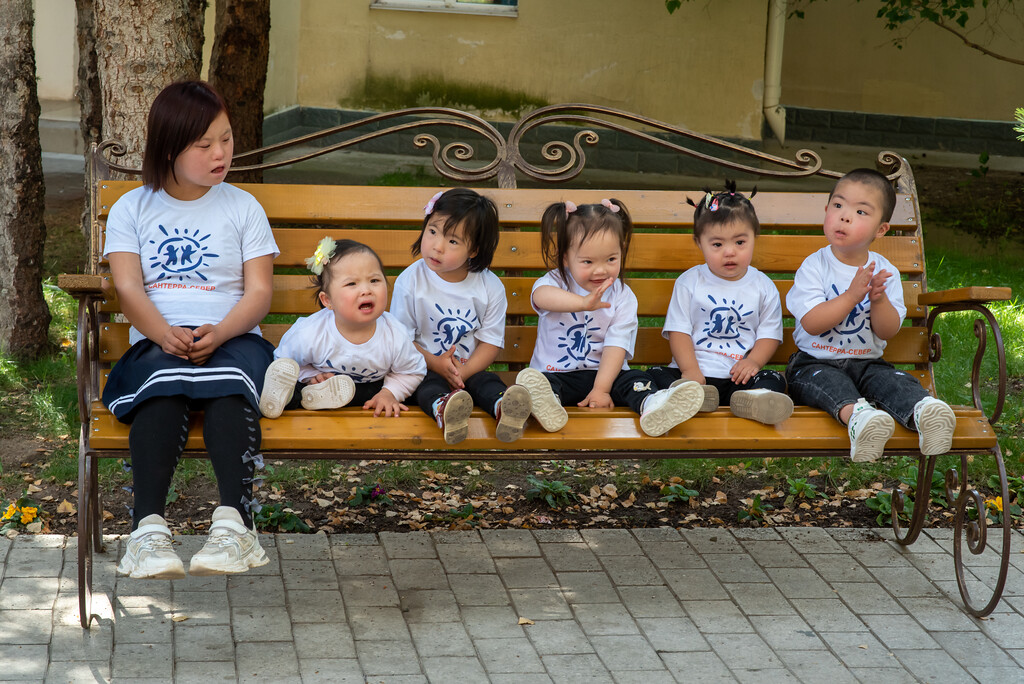
HOW SUNTERRA HELPS?
Parent counseling and support:
Counseling is the foremost and essential service provided by Sunterra to parents, offering a lifeline for those navigating a new reality. Available from pregnancy through delivery and beyond, counseling dispels the myth that having a child with Down syndrome is due to parental actions. Accurate information is shared, ensuring parents understand it is not their fault. In the first group meeting, Dina emphasizes this by having mothers repeat the statement, “It is not my fault that I have a child with Down syndrome.” This powerful exercise often brings tears as mothers begin to release the guilt they’ve carried since the diagnosis. In Kyrgyzstan, societal opinions burden mothers, leading to feelings of shame and unworthiness. Sunterra acknowledges this and provides comfort, guidance, and reassurance that parents are not alone. To foster community and support, a core group of mothers manages a WhatsApp chat – an internationally available freeware for instant message, where they can openly discuss their experiences without judgment. This platform offers comfort in the knowledge that others are sharing similar struggles, victories, joys, and discoveries on their journey.
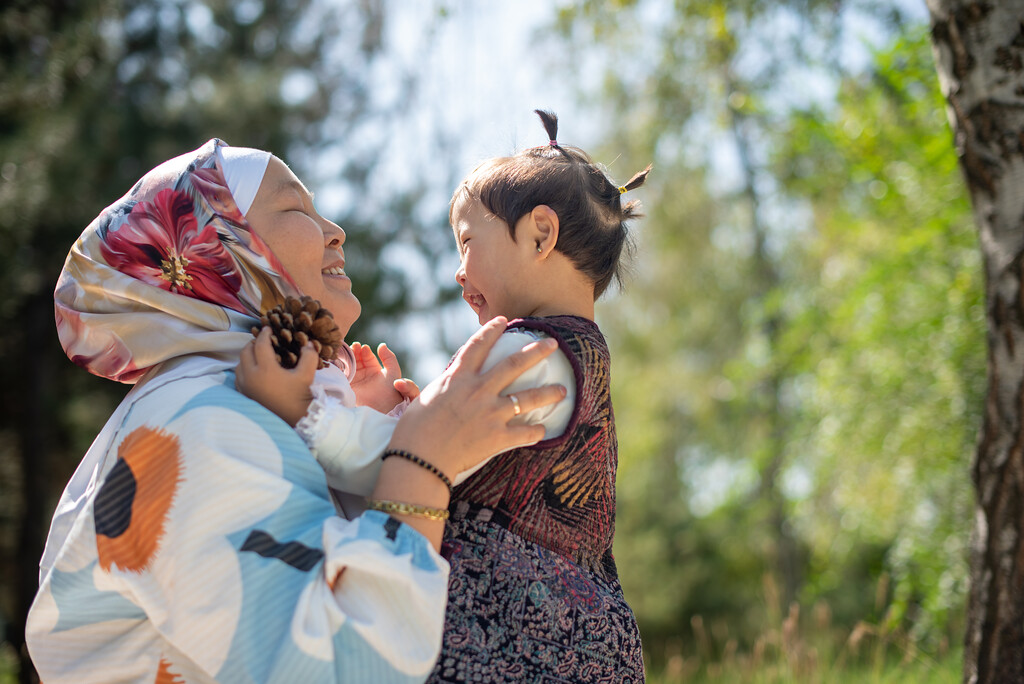
Early intervention:
Children with DS often experience common ailments such as hearing loss, heart defects, immunity issues, blood disorders, and other health challenges. Sunterra raises awareness about these conditions, enabling early testing and prompt treatment. At Sunterra, individualized lesson plans are created for each child, with young children aged 0-3 attending the educational program twice a week. Therapists provide tailored 30-minute one-on-one lessons, adjusting activities every 5 minutes to accommodate their short attention spans. Sign language is taught to non-verbal children and gradually phased out as verbal skills develop. Parents are encouraged to participate in the instructions to continue teaching at home. Dina and staff emphasize to parents that “active parental involvement is crucial for their child’s development.” Sunterra also offers physical, speech, and occupational therapy, aiming to foster independence and school readiness. By incorporating parent and medical professional input, services are customized to meet each child’s unique needs, providing reassurance and support to parents. With a focus on individual attention and excellence, families can trust Sunterra to care for their child effectively.
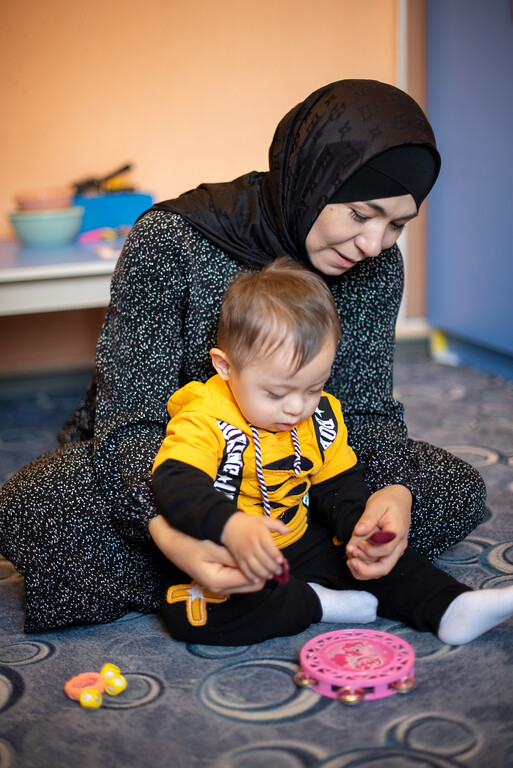
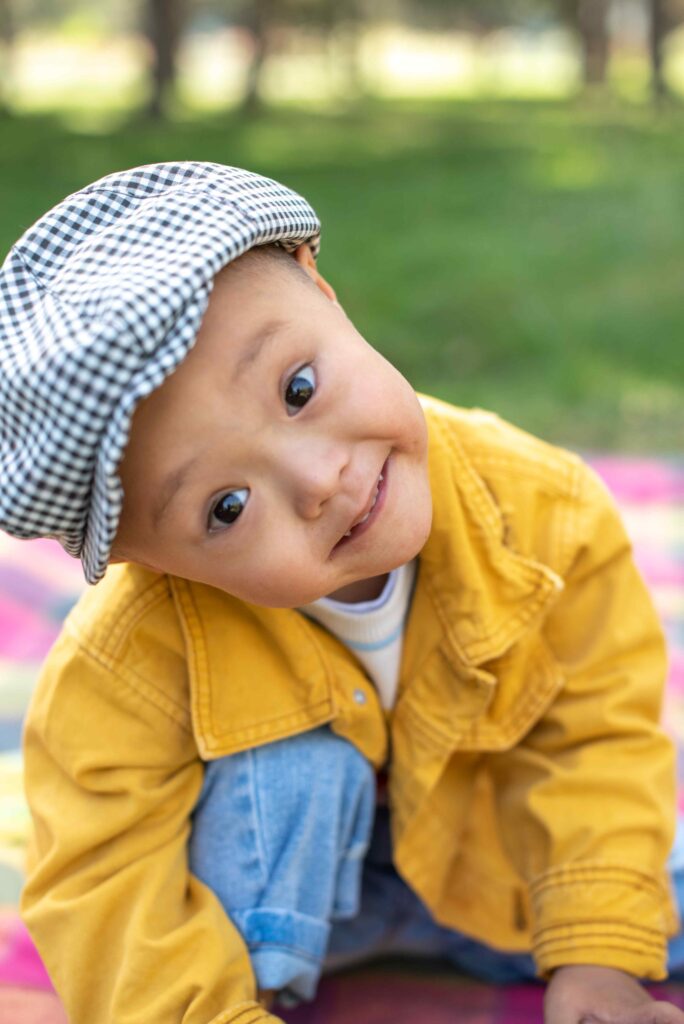
Traditional Classroom Instruction:
Sunterra provides a traditional classroom setting for children aged 3 to 10, three times a week from 9:00 AM to 4:00 PM. Despite varying levels of ability, these children receive individual attention and support. Being in a classroom with more advanced peers benefits delayed learners by challenging them, pushing them out of their comfort zones, and encouraging engagement with more challenging material. The teacher- to-student ratio is typically 1:4 or at most 1:7, reflecting Sunterra’s commitment to inclusivity and reluctance to turn away students. Exceptions are made for children diagnosed with both DS and autism, who are referred to programs better suited to their needs. At Sunterra, every student is valued and supported. Batygul, a Special Education teacher at Sunterra, shares a success story, highlighting that children can show progress regardless of past challenges. Each child is given a fair chance to succeed, regardless of their previous progress.
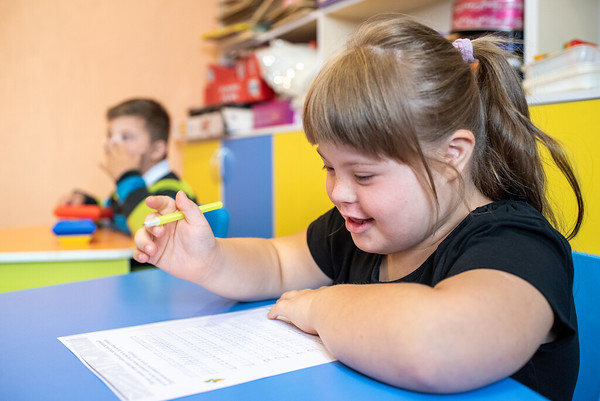
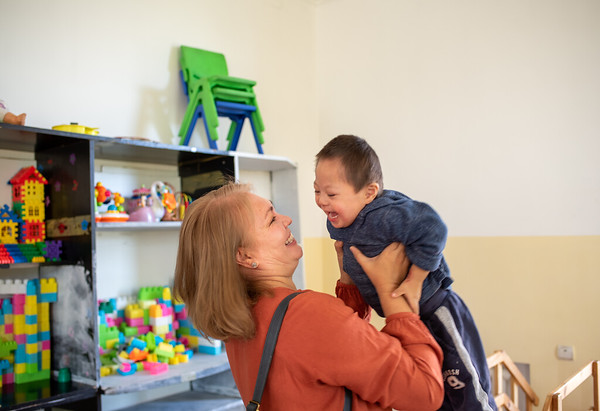
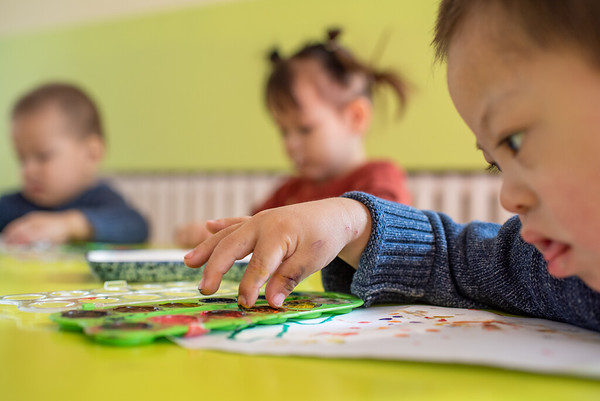
Sunterra Support Network:
Sunterra collaborates with a range of organizations, including educational institutions and medical facilities, to fulfill its mission of providing vital services to the DS community. Recently, they have been working closely with “Children Pro Daycare” and “Children Development Academy,” both dedicated to serving all children, including those with DS. Through strategic planning and expert guidance, Sunterra has helped these centers create an optimal environment for the growth and development of DS children. In February 2022, Children Pro Daycare welcomed their first child with DS, three-year-old Sayan, who has been part of Sunterra since he was four months old. Sayan’s progress has been remarkable, with significant advancements in his motor skills, attention, and focus during sessions. With Sunterra’s support, Sayan has transformed into a confident and engaging child, benefiting from his inclusion in the daycare alongside his younger brother.
Children Development Academy is an inclusive school that has been providing education to typically developing children and those with special needs since 2019. This year, they have opened their doors even wider by welcoming Elida – daughter of Sunterra’s co-founders Bekbolot and Aichurek – as the first student with Down syndrome in the Academy. With support from her parents as well as seminars facilitated by Sunterra staff, Karina (Head at CDA) reports that “things are going well; however, we are still in an experimental stage”. The school is bustling with life, as it has 41 students of varying ages attending. Of those 41, nine have special educational needs, and two are living with DS – a testament to the inclusive nature of this setting. Despite the demand for more spots at the school outpacing availability, potential parents must wait due to an urgent need for specialized educators who can work effectively in these settings.
Other establishments, like hospitals, will often call the Eshalievas requesting a visit to a mom who has given birth to a child with DS. Through their visits, they seek to give new parents accurate information and empowering support to make well-informed decisions for themselves – whether it be keeping their baby or to explore other options. In the past, moms had no access to this invaluable service, leaving them confused as to why their child’s development was different from other children. Jamal, who became a mother over 40 years ago, didn’t find out about her son Juma’s diagnosis until he was already an adult. She explains, “When I was raising him, there were no services available. There was never a diagnosis.” Understanding the significance of these meetings, Dina believes it is her responsibility to engage in a conversation with these new parents.
On a fateful visit to a mother in need, Dina and Nurmat’s lives were changed forever. When Dina arrived at the hospital, the mother had already decided to leave her newborn son behind. That newborn son would become the youngest addition to the Eshalieva’s family.
THE ESHALIEVA’S HOME-LIFE
Dina and Nurmat now have four children: Daniel – 15, Abigel – 11, Elias -7, and Eliazar – 6. Dina and Nurmat adopted Eliazar after his birth mother decided to leave him at the hospital after delivery. It was love at first sight when meeting baby Eliazar. Dina shares, “When I saw him, he was wrapped up in a pink blanket, with long unclipped fingernails; he looked up at me, smiled a huge smile, and immediately fell asleep in my arms. I could not bear to leave him there.” After many family discussions and some pushback from concerned family members, they decided to move forward with the adoption. Within weeks, they were able to bring Eliazar home.
With two children living with DS, this family has come together to create a special connection filled with support and strength. No matter the difficulties that arise, their bond remains unbreakable. Currently, all the children are being home-schooled except for the eldest. Their days are structured where needed: school lessons, extracurricular activities, meals, bedtime; and free-flowing where the world is their playground – exploring the various parts of the world with their parents. Abigel has been excelling academically, now mastering books at a second-grade level. As any preteen would be, she is coveting a new phone to keep in touch with her friends and loves expressing herself through jewelry and fashion. Eliazar brings joy wherever he goes – his hilarious one-man shows have brought laughter into the home! Meanwhile, Daniel and Elias are two caring brothers; they radiate empathy as well as intelligence when contributing their thoughts on conversations or family matters. Their home is full of comfort and tranquility, a nurturing environment where their children can thrive and flourish—a true home in every sense of the word.
It’s remarkable how Nurmat and Dina Eshalieva have turned their situation into the beautiful Sunterra Public Foundation that supports the Down syndrome community in Kyrgyzstan. Their work has been inspirational; it has helped hundreds of people from all walks of life come together and support one another. From early intervention and traditional schooling for children to parent counseling, their foundation has changed lives for the better. Sunterra’s tremendous success was made possible thanks to the hard work and dedication of its co-founders and core group of parents who have provided unequivocal support. The Eshalievas quickly points out, “without their help, none of this would be achievable.” With immense gratitude, they take great pride in watching those living with DS flourish into talented individuals. And contrary to popular belief, their own family is especially thriving as well– setting an example for many others in similar situations. Dina and Nurmat are a beacon of hope and resilience, proving there is still sunshine found under challenging circumstances.
